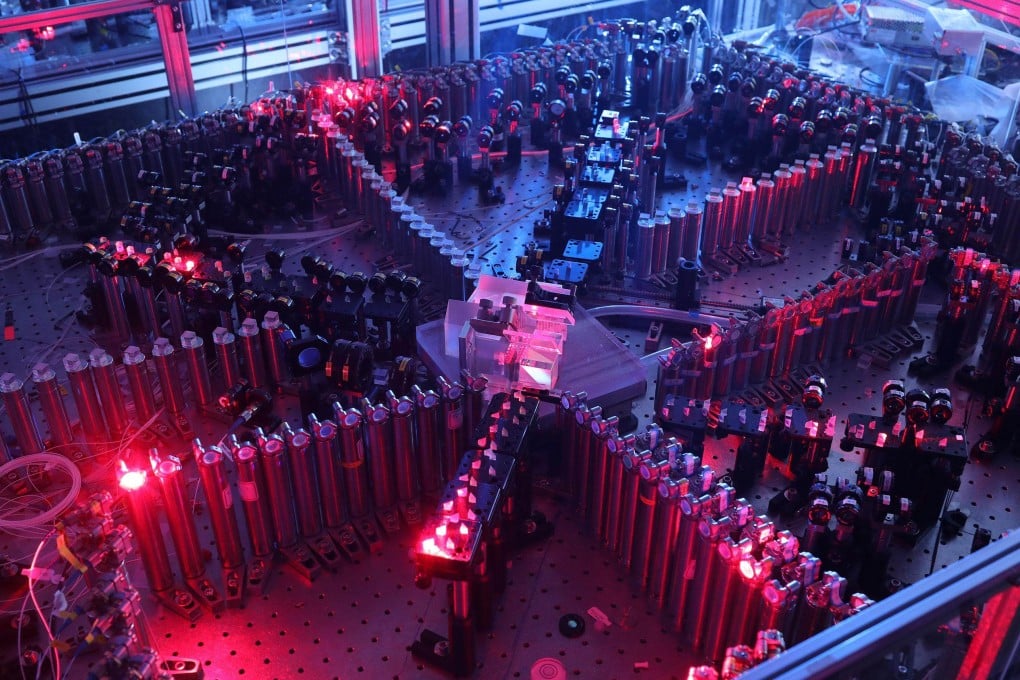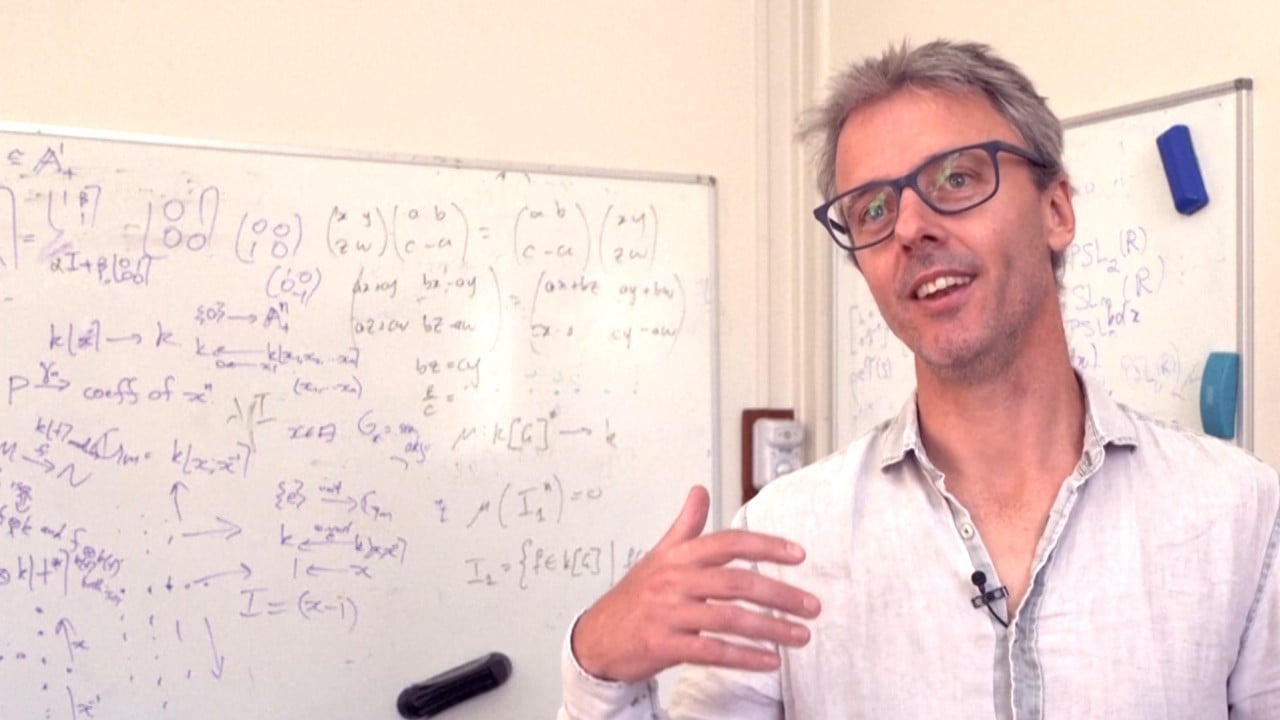Chinese quantum computer is 180 million times faster on AI-related tasks, says team led by ‘father of quantum’ Pan Jianwei
- The team says the device could be applied to data mining, biological information, network analysis and chemical modelling research
- Jiuzhang computer took less than a second for a task that the fastest classical supercomputer in the world would take nearly five years to solve

The problems solved by their quantum computer could be applied to data mining, biological information, network analysis and chemical modelling research, the researchers said.
Their article was published in the peer-reviewed journal Physical Review Letters last month.
In the experiment, the team used Jiuzhang to solve a problem that is challenging for classical computers. It used more than 200,000 samples to solve the problem.
The researchers, for the first time, used the quantum computer to implement and accelerate two algorithms – random search and simulated annealing – that are commonly used in the field of AI.
The fastest classical supercomputer in the world would take 700 seconds for each sample, meaning it would take nearly five years to process the same number of samples.
